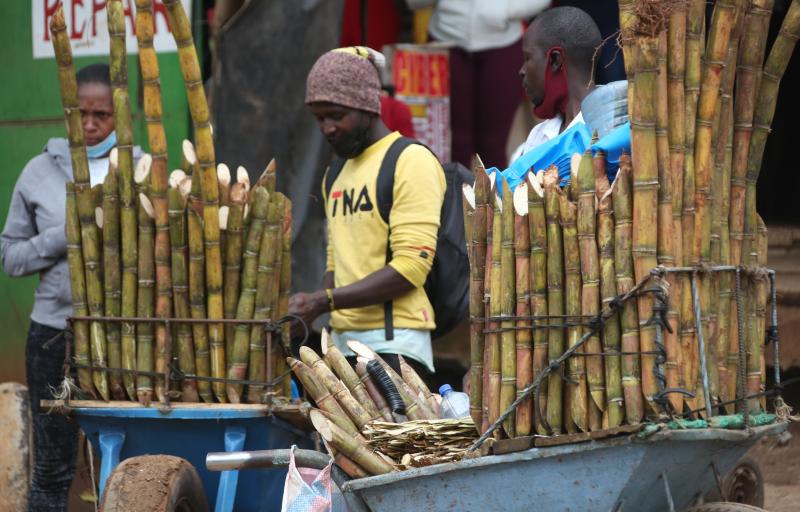×
The Standard e-Paper
Join Thousands Daily

A customer selects a piece of sugarcane from a hawker in Nyeri Town. [Kibata Kihu, Standard]
This year’s Africa industrialisation Week was marked at the governor’s compound in Nanyuki town last week.